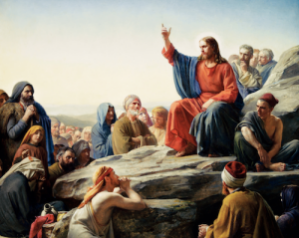Paul warned the Christian overseers of Ephesus that after his going away “oppressive wolves” would enter in among true Christians and would not treat the flock with tenderness but would try to draw away “the disciples” after themselves (not just making disciples for themselves but trying to draw away the disciples, Christ’s disciples). (Ac 20:29, 30)
The apostle Peter drew a parallel between the apostasy from Christianity and that which occurred in the natural house of Israel. He said: “However, there also came to be false prophets among the people, as there will also be false teachers among you. These very ones will quietly bring in destructive sects and will disown even the owner that bought them, bringing speedy destruction upon themselves. Furthermore, many will follow their acts of loose conduct, and on account of these the way of the truth will be spoken of abusively.” Peter goes on to point out that these would exploit the congregation but that “the destruction of them is not slumbering.”—2Pe 2:1-3.
A composite “man.” The “man” of 2 Thessalonians 2:1-12 is, therefore, not an individual, but a composite “man,” a collective group, as the foregoing scriptures show, and this “man” was to continue after the apostles’ death and exist down until the time of the Lord’s presence.
The “lawlessness” that this composite apostate “man” commits is lawlessness against Jehovah God the Universal Sovereign. This “man” is guilty of treason. He is called “the son of destruction,” as was Judas Iscariot, the traitor who betrayed the Lord Jesus Christ and who was instrumental in bringing about his death. He, like Judas, is to be annihilated, sent into extinction forever. This “man” is not “Babylon the Great,” who also fights against God, for she is a woman, a harlot.—Joh 17:12; Re 17:3, 5.
“The man of lawlessness” sets himself in opposition to God and is therefore a “satan,” which means “resister.” And, indeed, his “presence is according to the operation of Satan.” (2Th 2:9) In the days of the apostle Paul, there was “mystery,” or a religious secret, about the identity of this “man of lawlessness.” To this day mystery shrouds his identity in the minds of many persons, because his wickedness is practiced under the guise of godly devotion. (2Th 2:7)
By his lying teachings contrary to or superseding, as it were, the law of God, “the man of lawlessness” sets himself up over Jehovah God and other ‘gods,’ mighty ones of the earth, and also against God’s holy ones, true spiritual brothers of Jesus Christ. ―Insight on the Scriptures, Volume 2 pp. 310-312 Man of Lawlessness
The evidence shows that they are the body of proud, ambitious clergymen of Christendom, who over the centuries have set themselves up as a law unto themselves… What all these religions have in common is that they do not hold fast to the Bible’s teachings, having violated the rule: “Do not go beyond the things that are written.”—1 Corinthians 4:6; see also Matthew 15:3, 9, 14.
Why have Jehovah’s servants powerfully exposed the man of lawlessness all these years? Because the millions of the great crowd of Jehovah’s sheep that are already on the way to salvation must be protected from Satan’s world and its false religion. (John 10:16; Revelation 7:9-14) ―w90 2/1 pp. 10-25, Identifying “the Man of Lawlessness
In the light of what the apostles Paul and Peter say about the apostasy, who really is “the man of lawlessness . . . the son of destruction”? To “elders,” the “overseers” who represented the congregation of Ephesus, the apostle Paul said that men would rise and “speak twisted things,” in the religious field. This narrows the matter down to the religious leaders of the Christian congregation, those ordained or appointed to “shepherd the congregation of God.” ―God's Kingdom Has Approached (ka) chap. 18 pp. 368-397 pars. 19-72, Bringing the “Man of Lawlessness” to Nothing
If a Christian, and especially a Jehovah's Witness, is asked to provide proof of the existence of God, it is very likely that he will quote verse four of the third chapter of the letter to the Hebrews, "every house is constructed by someone, but the one who constructed all things is God".
The reasoning may be right, nothing came from nothing but everything on earth is due to the will of a designer, it is still good to note that Paul was not trying to argue about the existence of a Creator. He spoke to his Hebrew Christian companions who certainly did not question the fact that the universe was ruled by a powerful being who is behind everything. Moreover, in antiquity the problem was certainly not the non-belief in God but rather the opposite: people tended to believe in a multitude of gods. Furthermore, Paul, on one occasion, noticed that an altar dedicated to an unknown god had been made, certainly for fear of forgetting to revere a deity.

The first way to comment is to register in Disqus. If you have no account, click on the Disqus logo and follow the instructions.
You can comment as a guest: check “I’d rather post as a guest” and follow the instructions.
You can sign with your Google, Twitter or Facebook account.
At the moment, comments are not moderate, however, please respect common sense rules and current laws. (Note that moderation may come a posteriori)
